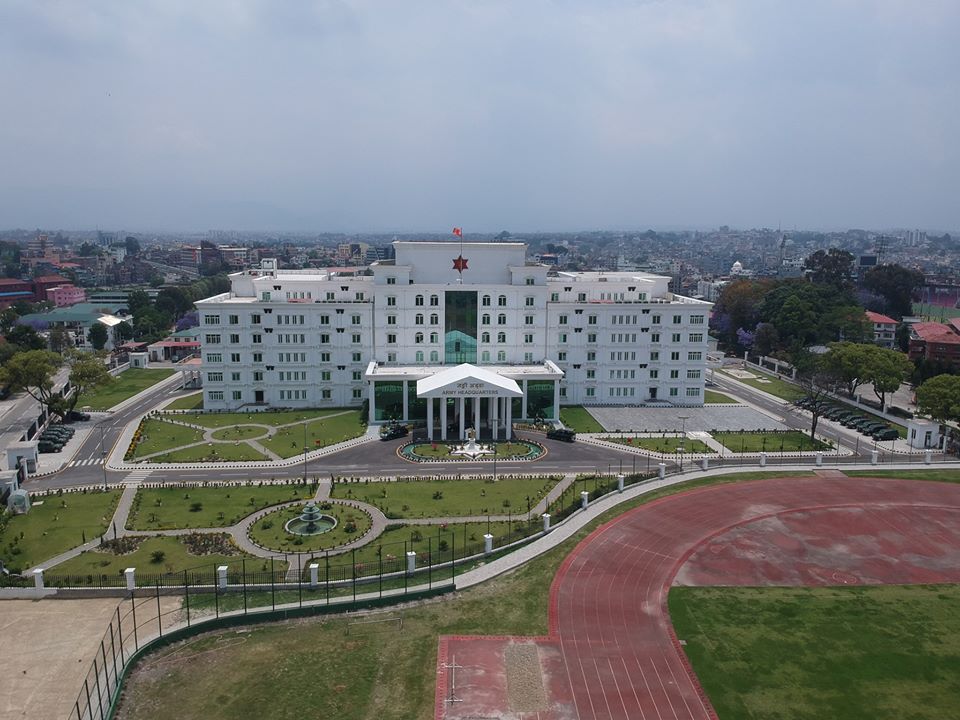0%

Nepal Army Headquarters, Kathmandu. (Photo for Representation)
KATHMANDU: Corruption in the Nepal Army has been a mystery. Be it the case of Prayog Jung Rana or Bhupal Man Adhikari, while deciding the corruption allegations against the NA officials, the verdicts seem to be somewhat tricky.
The verdicts never blame high officials outright as it comes indirectly.
They are criticized for ‘not utilizing the fund properly,’ or committing blunders related to property, discipline, etc., but not on serious issues.
Lately, NA is being criticized for corruption and other scams. The civil society has started to become watchful to the fact that the cases against bureaucrats, politicians or civilians fall in the corruption regulation authorities and reach to court, and the culprit is forced to pay for the damage as per the legal provisions.
“NA often seems entertaining ‘special’ privilege,” a highly-placed retired security official said insisting anonymity.
Some high officials of NA including Prayog Jung Rana are in custody at the Paanchkhal Training Center and Military Hospital.
Some few are fined in the army school corruption allegation. In some other cases like the scams related to fast track, air service, financial abuses some are asked to resign but others are asked to pay a little sum and offered amnesty.
Generally, the Military Summary Court looks after the inner cases of the Nepal Army.
The Court consists of a judge from the High Court, yet, the decision making procedure is largely internal there.
The decisions and the punishments are all internal. According to the provisions, the party that is not satisfied with the decision can take the case to the Supreme Court for appeal.
But, as the party cannot enjoy the amenities like pensions and medical treatment until the final verdict, most of them do not want to take their dissatisfaction with the court.
Article 239 of the Constitution has the provisions related to the functions, duties and rights of Commission for the Investigation of Abuse of Authority.
Clause 69 of the Army Act 2006 has the provisions related to the decision to proceed with a case in Court Martial or other courts.
Sub-clause 2 of Clause 69 says, “If a case is to be filed to another court, the accused shall be suspended from service and handed over to court where the case has been registered.”
However, this is not in practice so far. That’s why whether it’s in the case of Rana, Bhupal Man Adhikari, or any others, the verdicts are made in such a way that the alleged get the least to pay for the crime.
Interestingly, although the alleged in other cases have to pay the sum same as or double of the loss, damage, or misuse, the alleged in NA are never made to pay back.
They entertain amnesty. Besides, there is a precedent that says just because the person is retired or suspended, CIAA may not get the jurisdiction to sue the NA officials.
That’s why the retired high officials enjoy the legal pores, the source said.
For example, the Public Account Committee of the parliament directed CIAA to investigate various scams linked with retired COAs Rajendra Chhetri, but no investigation is initiated against him and he is enjoying the retired life despite having so many connections related with the scams.